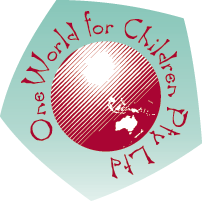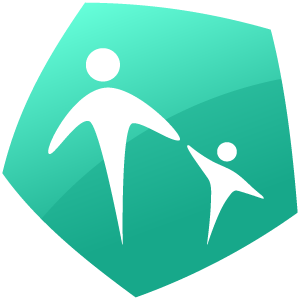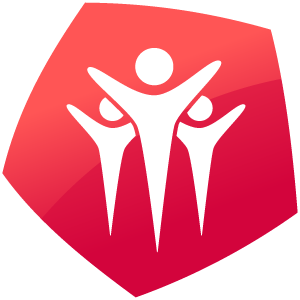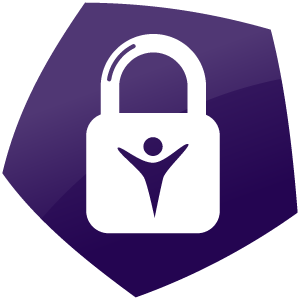| Group | Title | Description | Session |
|---|---|---|---|
| EYLF, NEW
| Are you still settling children - Need help forming relationships | All children deserve to know and feel that others care about them, know them well and are genuinely interested in what they do, think and feel. In this session you will discover how to build close, secure relationships with children of all ages, abilities, genders and backgrounds. Come along to learn and discuss strategies and techniques to extend and build on children’s comments and conversations which form respectful and equitable relationships. Learning Outcomes
Designed for: All educators. All service types Quality Area: 5 EYLF Outcome: 2 | |
| EYLF
| Belonging Being and Becoming - where are we now | Belonging, Being & Becoming WOW! 11 years on - 2 July 2009, when COAG endorsed the Early Years Learning Framework! How much have you grown as an educator over this time? How much growth have you seen at your service? Take this opportunity to revisit the fundamentals of the EYLF through Belonging; Being and Becoming.. Learning Outcomes
Designed for: All educators. All service types Quality Area: 1 EYLF Outcome: 1,2,3,4 & 5 | |
| EYLF
| Building a Strong Sense of Identity | Building a strong sense of identity focuses on the importance of understanding how children construct and develop their own sense of who they are and how they develop a sense belonging within the family and community. It will examine the importance of early experiences in relation to this. The connection between the vision, belonging, being, and becoming and the shaping of one’s identity will be discussed, and the areas of attachment, social and cultural heritage, evolving experiences and positive relationship building will be explored. Educators will be encouraged to reflect on their own knowledge, beliefs and values, as well as critically examining documentation and the provisions within programs. Learning Outcomes
Designed for: All Qualified educators. All service types Quality Area: 5 EYLF Outcome: 1 | |
| EYLF
| Connecting Children with the World | This session will target specific training and dialogue around the effect of experiences and relationships that assist children to make connections to their world. The relationship this has to the vision of the National Early Years Learning Framework in terms of belonging, being and becoming will be examined as part of a holistic approach to children’s overall learning and development. Early childhood services who provide children with opportunities to interact together and more broadly within their communities allow children to gain important skills and feelings of validity, experience interdependency, and build on their own self identity. The session will provide a forum where participants can reflect on their current practices in relation to connectivity and share and extend on ways to further enhance children’s contributions and connections to their world. The session will look at diversity, social responsiveness, fairness and justice and how we can provide programs that allow children to explore and experience this. Ideal for: Qualified Child Care Workers All Service types Quality Area:1 & 3 EYLF Outcome: 2 | |
| EYLF
| Considering Children's Agency | Having agency means “being able to make choices and decisions to influence events and to have an impact on one’s world.” (Early Years Learning Framework, p. 45). As educators, we need to provide children with the skills, knowledge and resources, including equipment, time and space, they need to develop a sense of agency. Children will thrive when they realise that they can make their own decisions and to control their own learning and development. Join us as we explore how we can use the environment, the curriculum and the routine to support children's agency. Learning Outcomes
Designed for: All educators. All service types Quality Area: 1 EYLF Outcome: 1 & 4 | |
| Development, EYLF
| Develop Confident and Involved Learners | This interactive session will examine the processes children use to develop understandings of themselves and their world and how children construct their own learning strategies. In a supportive learning environment children are given the opportunity to be responsible for their own learning, choices and contributions to their world. Through hands on active investigation children are able to develop strategies and nature of learning and are able to constantly build on and adapt what they learn to suit a variety of contexts and situations. This session will explore how early childhood educators can provide environments that instil a love of learning, support children’s learning styles and reinforce the value of hands on exploration and play in facilitating confident and involved learning. Participants will be encouraged to consider how children learn, and how through keen observation and documentation this learning can be made visible to children and families. Learning Outcomes
Designed for: All educators. All service types Quality Area: 1 & 5 EYLF Outcome: 4 | |
| Development, EYLF
| Documentation with Respect | The National Early Years Learning Framework for Australia has highlighted the importance of making learning visible via a variety of methods which collectively is referred to as documentation. This focus on documentation rather than “observation” has opened up possibilities to go deeper with examining the many ways children express their understandings and learning. Documentation includes expressing children’s own goals and describing much more than what is just seen. It brings the child to the centre of our curriculum where we look at the strengths and uniqueness of each individual as well as their learning within the social context.
The five key learning outcomes provide educators with key points of reference against which children’s progress can be documented and shared with children, families and other professionals. Respectful documentation is child centred, reflects children’s strengths and interests, and incorporates all relevant stakeholders in the reflection of learning that is occurring and has occurred within our settings. Educators who are interested in reflecting the EYLF, and developing their skills in noticing and writing respectful and meaningful documentation will benefit by attending this interactive session as we examine the possibilities of making children’s learning visible in our programs.
Learning Outcomes
Designed for: All educators. All service types Quality Area: 1 EYLF Outcome: 1, 2, 3, 4 & 5 | |
| EYLF
| Embracing the Early Years Learning Framework | This interactive session will provide participants with an opportunity to engage with the content of the new national framework to discuss and brainstorm the implications and opportunities for quality improvement within their services. The vision of the document will be examined and participants will engage in exploring how this can enhance their relationships with children and families and provide a foundation for providing responsive environments and experiences.
This session will look specifically at the vision of the framework; Belonging, Being and Becoming, and draw upon contemporary research supporting the effect of this on children’s overall development, and ability to form and sustaining meaningful relationships, as well as begin to explore the learning outcomes and the implication for practice.
There will also be discussion around the principles and practices outlined in the framework with a view to encouraging participants to begin reflecting and discussing these within their own services, as well as developing purposeful actions to enrich children’s learning.
Ideal for: Qualified Child Care Workers EYLF Outcome: 1,2,3,4,5 | |
| EYLF, NEW
| Forming respectful and equitable relationships with each child | All children deserve to know and feel that others care about them, know them well and are genuinely interested in what they do, think and feel. In this session you will discover how to build close, secure relationships with children of all ages, abilities, genders and backgrounds. Come along to learn and discuss strategies and techniques to extend and build on children’s comments and conversations which form respectful and equitable relationships. Learning Outcomes
Designed for: All educators. All service types Quality Area: 5 EYLF Outcome: 2 | |
| EYLF, NEW
| Infants Toddlers and the EYLF | Infants and toddlers deserve a world that is strongly influenced by the adults who surround them. The relationships that educators have with infants and toddlers will affect the quality of development, education and care. Explore how you can ensure that the vision and principles of the EYLF enhance your practices with infants and toddlers. Learning Outcomes
Designed for: All educators. All service types Quality Area: 5 EYLF Outcome: 1, 2, 3 | |
EYLF

| Nurturing a Strong Sense of Wellbeing | This session will look at the importance of wellbeing in relation to the physical and psychological development of young children. It will examine how dispositions, confidence, resilience, and willingness to engage in learning are all affected by a strong sense of wellbeing. The session will examine how competence in all areas of development has a direct correlation with overall learning and achievement, and the possibilities that exist within early childhood settings to provide the foundations for young children to develop skills and understandings that will impact on maintaining healthy lifestyles, making positive choices, and gaining skills that support independence and positive self esteem. The vision of the National Early Years Framework will be examined within the context and the interrelationship between wellbeing and belonging. Being and becoming will be explored within the day to day programming and interactions that services offer to children and families. Learning Outcomes
Ideal for: Qualified Child Care Workers Quality Area: 2 EYLF Outcome: 3 | |
| EYLF
| Practices and Principles in Action | Participate in this session to discover how values can be viewed through a lens; where educators or services can reflect on current practice. Take this opportunity to look at ways to improve or renew practices based on your values. Your services values should underpin practice that is focused on assisting all children to progress in to their full potential. Share your thoughts, or come along and listen to some ideas on implementing the values and current practice.
Learning Outcomes
Ideal for: All educators All service types Quality Area: 1 & 3 EYLF Principles and Practice | |
| EYLF
| Putting the pieces together - A guide to the NQF | Let us help you put the pieces together of the National Quality Framework (NQF) If you are new to the sector or haven’t had many conversations regarding the NQF then this is the session for you. This session will help you understand the acronyms and terminology that will assist your understanding of the NQF. It will help unpack the documents that are shaping a positive future for the Early Childhood Sector. If these words are not yet part of your professional vocabulary: ACECQA; National Regulations; Quality Standards; QIP; EYLF; Practices; Principles; Learning Outcomes plus more - this is a session for you. Learning Outcomes
Designed for: All educators. All service types Quality Area: 7 | |
| EYLF
| Raising Effective Communicators | This session will look at the importance of communication and its relationship to the vision of the National Early Years Learning Framework; belonging, being and becoming.
Children are intrinsically motivated to use a variety of strategies and tools to communicate thoughts, feelings and ideas. These expressions of communication, need to be received and extended upon in order to ensure children feel validated and connected to their world. This session will examine the importance of valuing the variety of interaction styles, languages, and expressions that children make and explore how responsive early childhood environments provide opportunities for all children to express themselves and be heard and understood. It will also examine the skills and requirements of effective communication and the importance of language, literacy and numeracy in providing children with ways of engaging with ideas and communicating these ideas effectively and in a variety of ways. Competency within language, literacy and numeracy form the foundation for successful learning and the importance of the influence of families and cultural experience will also considered in relation to working with families in partnership to support effective communication.
Learning Outcomes
Ideal for: All educators All service types Quality Area: 1 EYLF Outcome: 5 | |
Miscellaneous, EYLF

| Special Presentation - Diversity and difference in Early Childhood with Anthony Semann | The world is rich in diversity and difference and this is a gift of difference entering the early childhood space. Diversity in families, children and staff and the ways in which we work with diversity and difference can be both enriching as well as challenging. During this online program we will explore a range of issues including, how do we celebrate difference authentically, how might we navigate the challenges of difference and what might a curriculum with links to diversity look like in practice | |
Miscellaneous, EYLF


| Special Presentation - Emotional Intelligence with Dr Louise Porter | Our emotions guide us to face challenges and tasks that are too important to leave to the intellect alone. Emotional intelligence, then, is the ability to integrate thinking and emotions to produce effective behaviours. To do this, we need to understand our emotions. However, we can become muddled if we mistake thoughts for feelings. When we allow our feelings to dictate how we live our life, we are like a puppet on a string, being jerked around by our emotions. Therefore, it is important that, just as we call a spade a spade, we call a thought a thought, and an emotion an emotion. To that end, this session will describe three ‘fake’ feelings. These are merely thoughts that we have chosen to invite in and entertain – but when we give them the status of emotions, we believe that we are justified to act on them and to make other people suffer for ‘causing’ them. Once we understand that they are mere thoughts (or stories in our heads), we will be less distressed and therefore more able to process information clearly, and less likely to blame others and expect them to ‘fix’ what we are feeling. We will be emotionally literate. | |
Miscellaneous, EYLF

| Special Presentation - Guiding Children's Behaviour with Dr Louise Porter | In this seminar, Louise Porter will identify why we should not reward or punish children for their actions. First, children who want to please us do not need to be punished when they make mistakes, because they are already remorseful and, therefore, do not need to be 'taught a lesson'. In contrast, nonconformist children (who value being in command of themselves) are prepared to risk our displeasure to prove to us that we can't make them do things. The more we try to control these spirited children through rewards and punishments, the more rebellious they get. In other words, rewards and punishments (consequences) are unnecessary for one group of children and counter-productive for the other group. In this session, Dr Porter will details alternatives, including giving positive feedback without praising; and supporting children to regain command of their own emotions, rather than punishing them for becoming out of control. |




